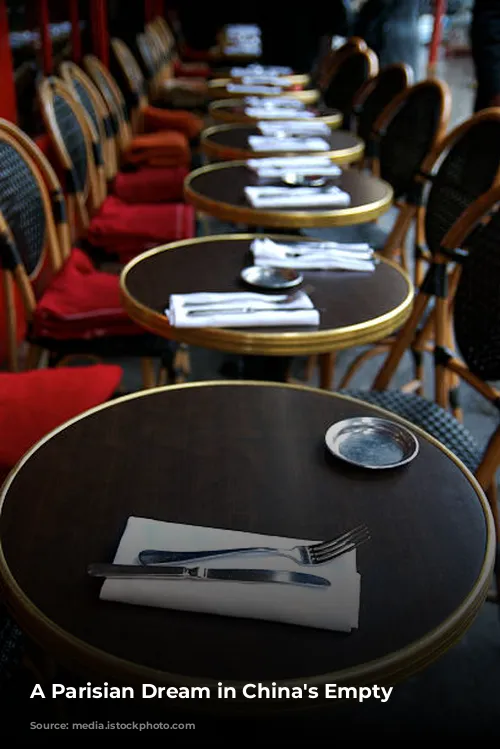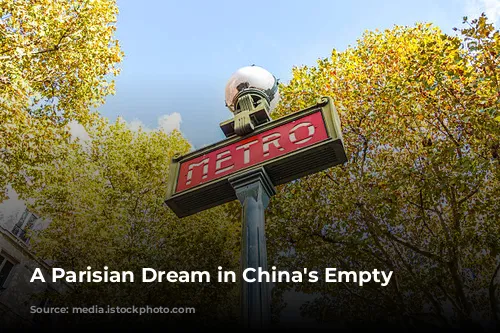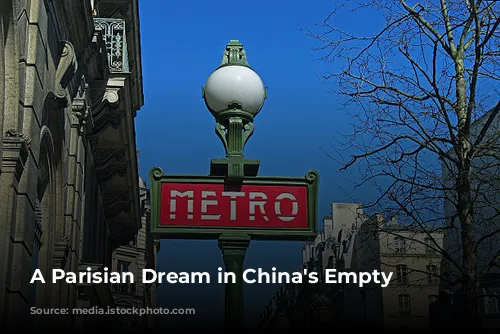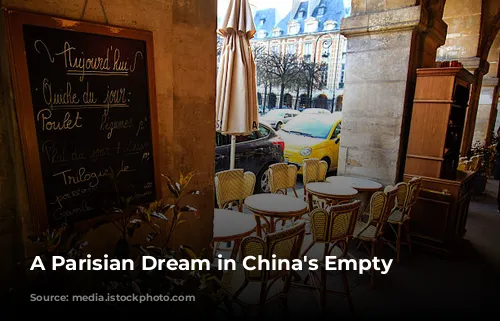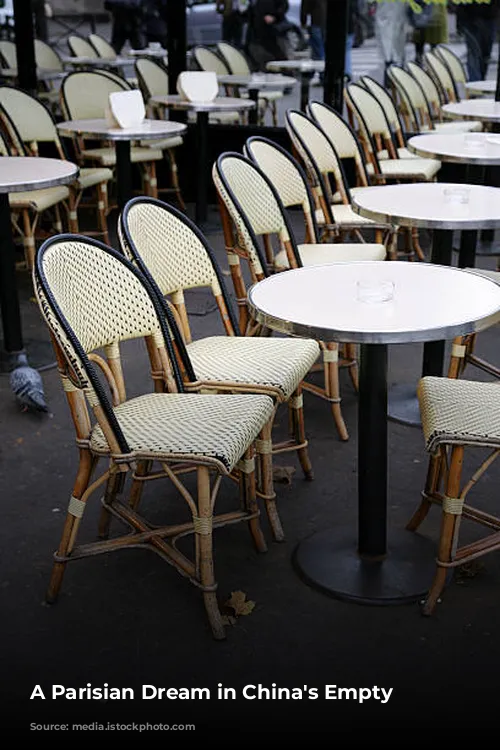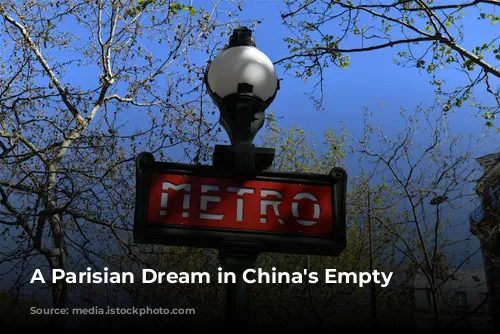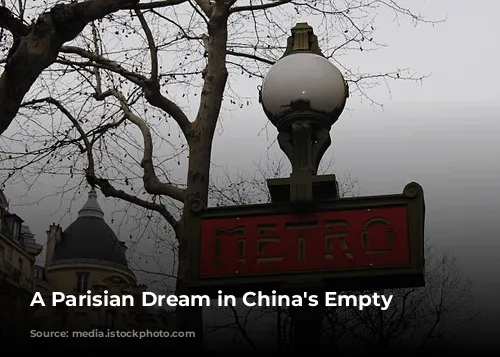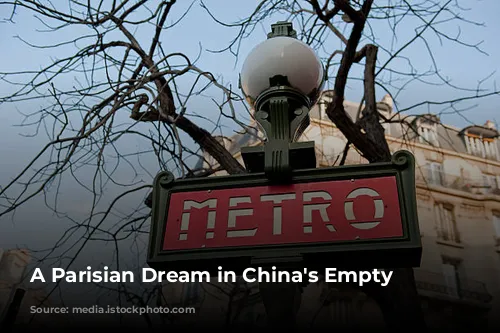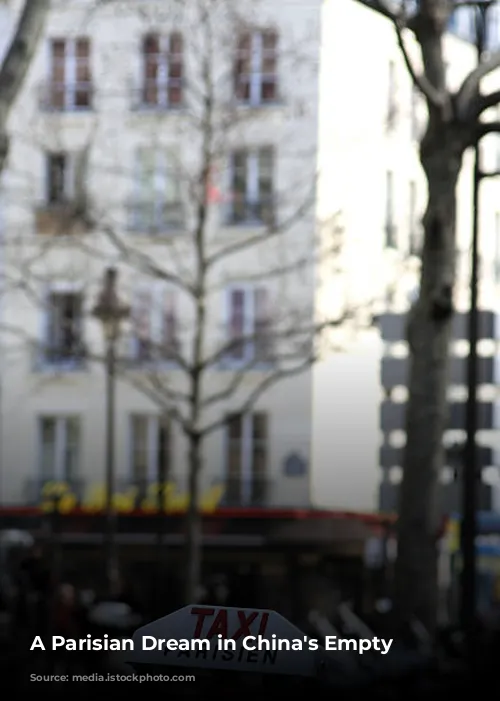Imagine a town where the Eiffel Tower stands tall, surrounded by charming Haussmann-style buildings, all seemingly transplanted straight from the heart of Paris. This is Tianducheng, China’s version of the City of Lights, a place where dreams of European grandeur collide with the reality of an almost deserted landscape.
While the town boasts a stunning replica of the Eiffel Tower, bronze statues of Greek gods, and even a cafe called “Cristina” serving coffee and tea, the illusion quickly fades.
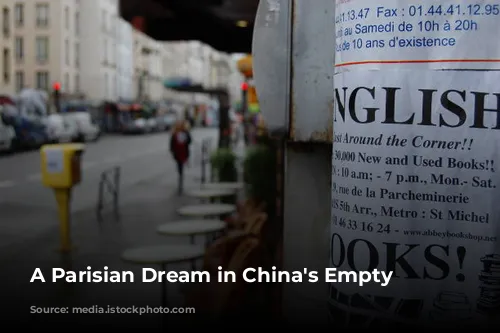
A Ghost Town of French Dreams
The streets of Tianducheng are eerily empty, a stark contrast to the bustling cityscapes of China. The fountains, designed to mimic those of Paris, are silent, and the coffee at Cristina’s? Not real. It’s a facade, a decorative touch that adds to the illusion of a Parisian experience, but ultimately reveals the town’s emptiness.
This billion-dollar development, built with the ambition of attracting 10,000 residents, has attracted only a fraction of that number. It stands as a testament to China’s rapid development, a reflection of a time when ambitious projects often outpaced real demand.
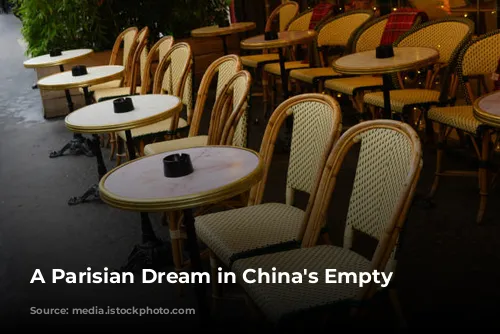
A Bite of France, With a Chinese Twist
The only restaurant in Tianducheng with a steady stream of customers is Hokkaido, a Japanese teppanyaki joint. The French restaurant, however, Provence Restaurant, sits empty, a solitary haven of “French” cuisine in a town devoid of its supposed namesake’s character.
Inside Provence, the atmosphere is a curious mix of French and Chinese. Charming pink and yellow wallpaper and French windows evoke a sense of Parisian charm, while the fluorescent lights, banquet-hall style layout, and waitresses in matching uniforms reveal its Chinese roots.
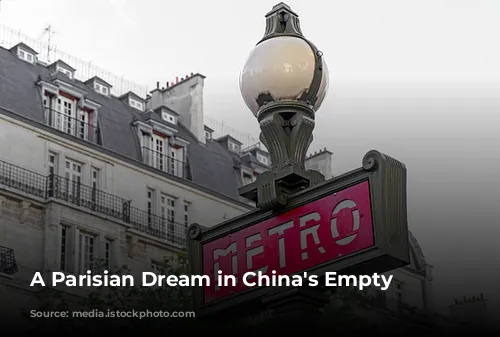
An Unexpected Culinary Journey
The menu at Provence, while boasting some Western-style options like Coquilles St. Jacques and foie gras, is ultimately more Chinese in its essence. The dishes are reminiscent of typical upscale Chinese restaurants, offering a diverse range of flavors and textures.
The Coquilles St. Jacques, while named after the classic French dish, are actually a unique fusion of thin noodles, shredded crabmeat, and egg. But the roast chicken, prepared with the feet included, is a standout, its tender, juicy meat a testament to the culinary skills of the chefs.
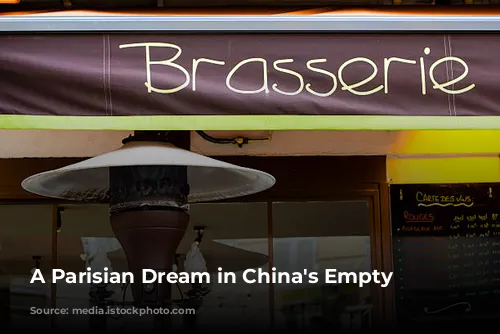
The Illusion of Authenticity
My request for bread, a simple act in any French restaurant, exposed the true nature of Provence. Instead of the classic baguette, the waitress brought us two slices of toast, made with sandwich bread. A subtle but telling detail that underscored the disconnect between the restaurant’s aspirations and the reality of its cuisine.
While the lack of authentic French food might be understandable for a restaurant in the suburbs of Hangzhou, China, the development of Tianducheng itself is a more perplexing decision. The massive investment in a fake Paris, in a seemingly random and sparsely populated area, leaves one questioning the rationale behind such a grand endeavor.
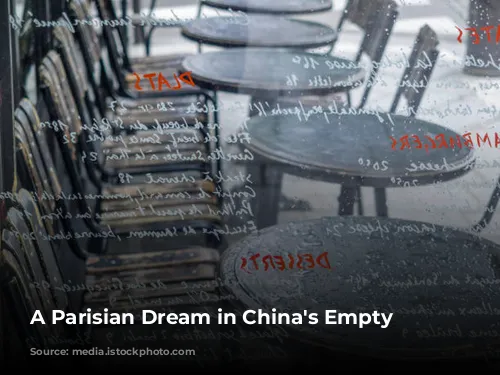
A City of Empty Dreams
As I wandered the streets of Tianducheng, the silence was almost deafening. The lack of activity, the empty streets, and the absence of life left me wondering if the waitresses stared at me because I was a foreigner, or simply because I was a rare sight in this desolate town.
Tianducheng is just one example of the many ghost towns that dot the Chinese landscape. From the soaring buildings to the empty streets, these developments stand as a reminder of China’s ambitious growth, and the sometimes unrealistic expectations that drive it. As China’s economic landscape continues to evolve, it remains to be seen whether these dreams of Parisian grandeur will ever become a reality, or whether they will continue to stand as empty monuments to a fleeting ambition.
